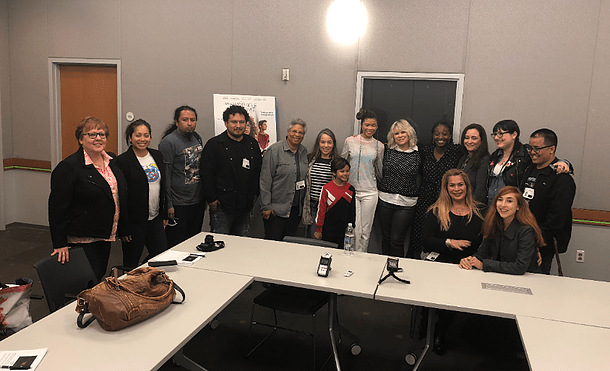
Brave Beginnings : Helping Preemies Thrive
It seems like most women I know either had a tough pregnancy or difficult birthing experience. Luckily, my pregnancy was pretty easy though I had to go in to the doctor’s office every other week for the first two trimesters because I was considered “high-risk” due to my age (anyone over 35 years of age is placed in this category). However, the delivery was anything but and between hemorrhaging due to a torn placenta and emergency C-section it was a tough ordeal. Because of the torn placenta and severe bleeding, my daughter was immediately taken to NICU for monitoring. I would go visit her in the NICU and most of the babies there were preemie’s half or even a fourth her size. It broke my heart to see these little guys fighting for their lives but the nurses and doctors were giving it their all to save them and luckily they had the necessary equipment needed to give the preemies a fighting chance. But many hospitals around the country do not and Brave Beginnings is hoping to help these premature babies thrive by getting the necessary equipment into these facilities.

Brave Beginnings –a nonprofit organization dedicated to helping premature babies thrive by ensuring hospitals have the life-saving equipment needed to care for them. It may be surprising to hear, but the U.S. is ranked 6th of the top ten countries with the highest number of premature births. Premature birth accounts for 35% of all infant deaths, more than any other single cause.
While many communities across the U.S. have good hospitals, not all have the state of the art equipment to care for fragile premature births. The Brave Beginnings program hopes to change that. We had a chance to interview Todd Vradenburg, the Executive Director of the Will Rogers Motion Picture Pioneers Foundation about the program and how people can help.

- How many premature babies are born in the US each year and cost associated with each (or estimation)? One in nine of all births (450,000 babies) in the U.S. are born prematurely. Preemies in hospital care can last 9 times longer than full term infants – averaging $52,000 per preemie. The economic toll on our nation’s healthcare system each year is more than $26 billion.
- Please explain to our dandelion moms the difference between Brave Beginnings and The March of Dimes (as I’m sure we’ll receive questions/or there may be confusion by some): The mission of March of Dimes is to, “help moms have full-term pregnancies and research the problems that threaten the health of babies.” Their goal is to work with mothers and families and provide resources to help babies reach full-term. The mission of Brave Beginnings is to provide healthcare workers with the tools they need to perform the miracles they are being asked to do – save premature babies. We care deeply about the mothers and the infants, however, we leave the work for those two groups to March of Dimes (and other charities) because they are darn good at it. The BB program evolved because we learned of the tremendous need hospitals have for equipment in NICUs and no other charity was focused on this need.
- What are some key advantages to the NICU for premature babies and having the right equipment even at a good hospital in the US (such as cost, equipment, and how hard it is for those hospitals to care for preemies):Most communities across the U.S. have good hospitals, but not all have a NICU that can service fragile premature births. The economic reality is an estimated 75% of NICU infants are Medicare or Medicaid patients or receiving financial assistance. The reimbursement rate for such patients is low and there is no allocation for NICU equipment from state or federal agencies, leaving hospital foundations to raise the money for such expenditures. The care given to a premature newborn, in the first hour after birth, is crucial for long-term health of the child. Complications such as blindness, bleeding inside the skull, life-threatening intestinal inflammation, respiratory distress syndrome and pneumonia are common among the earliest preemies. If hospitals have the right equipment, it can be a matter of life and death because the baby will not need to be transported to a facility that can provide the crucial services needed to combat these life-threatening ailments.
- In the same regard, can you expand a little about what the NICU is and has to offer along with explaining a “preemie” and again, emphasize the importance (how it ties in to #3):NICU is an acronym for Neonatal Intensive Care Unit – a special unit in a hospital that provides around-the-clock care to sick or premature babies. A “preemie” is a premature, or preterm, infant. A birth is considered “preterm” when a child is born before 37 weeks of pregnancy have been completed.In any given modern NICU there are more than 20 pieces of equipment that are vital to the well-being of preemies. Two of the most commonly requested pieces of equipment are Giraffe Omnibeds and Transport units.
- Giraffe Omnibed – is state-of-the-art equipment which provides premature and ill babies with a controlled, stress-reduced environment, much like that of the mother’s womb. It helps regulate body temperature and features humidity control to avoid moisture loss through thin skin. The OmniBed has a mattress that can be rotated 360 degrees and large drop down doors providing quick and easy access from both sides. The beds have a built-in scale for weighing and an unobtrusive X-ray tray if scans are needed. Most NICU babies are too fragile to tolerate the movement and temperature changes necessitated when using a simple incubator. Babies on ventilators can lose their breathing tube when moved, putting the infant in severe respiratory distress and greatly compromising their medical status. The physical act of moving a critical infant, especially from one environment to another, causes additional physiological stress, which does not aid in the healing process for the infant.
- Airborne 750i Transport Incubator – This device is used to transport a baby from either a transferring hospital to a higher level NICU, or can be used to transport a baby within the hospital where it was born. It can function like a portable intensive care unit and allows the delivery team to provide high-level care to infants until they can be safely admitted to the NICU. A specialized transport incubator provides a warm, safe environment for a baby up to 15 pounds. The incubator has a built-in ventilator to help babies breathe air or pure oxygen. It also has technology to monitor a baby’s heart rate, respiratory rate, temperature, blood pressure and oxygen level. When minutes – even seconds – count, the availability of important medical equipment like this transport isolette makes all the difference.
- What are some rick factors for premature babies and what can parents expect? Important growth and development occur throughout pregnancy – especially in the final months and weeks. Because they are born too early, preemies weigh much less than full-term babies. They may have health problems because their organs did not have enough time to develop. Preemies need special medical care in a NICU where they stay until their organ systems can work on their own. Forty six percent of all preemies born at 28 weeks face lifelong complications such as, chronic lung disease, blindness, life-threatening intestinal inflammation and cognitive delays. Am I a “high risk” pregnancy? If a woman’s pregnancy is considered “high risk” and there is a likely chance of premature birth, arrangements can be made ahead of time to deliver at a hospital that is better equipped to care for the baby.It is always a good idea for parents to be prepared for a premature birth. There is not one specific cause for an early delivery and it can happen to anyone.
- Here are 2 important questions for expectant parents to consider:Is my local hospital affiliated with a surrounding hospital that can provide proper care? Often times there are transport units (both air and ground) that can take a baby to an affiliated hospital that is equipped to care for preemiesFor those in areas where their hospitals do not have a NICU and/or proper equipment to care for a preemie, what would be some important questions that expectant parents should ask (and look for)?

What are some ways/things that our readers (and everyone) can do to help support Brave Beginnings with both funding and awareness? We need people to: 1. Learn about the preemie crises going on in the US, March of Dimes is trying to help curtail the problem, but they need help spreading the word about prenatal health. 2. Donate to Brave Beginnings and organizations like Children’s Miracle Network until hospitals have all the equipment that they need. 3. Spread the word to your social media network, friends and family that there are many babies that will be kids and adults someday and all of us have a duty to help the babies get the best start possible. And ask your friends to take a look at Brave Beginnings, help us put ourselves out of business.
Any final thoughts or advice you would like to share or leave the dandelion moms readers with?
One of the goals for Brave Beginnings is to educate people on the topic of premature births. This silent epidemic is very real and can happen to anyone, regardless of age, race or socio-economic status. Families should prepare themselves for the possibility of a premature birth and know which hospitals in their area are prepared to care for a preemie, just in case.
Many people are surprised to learn that United States is ranked 6th of the top ten countries with highest number of premature births. There are many reasons for this terrible statistic and many organizations are trying to improve this problem by focusing on the expecting mother and prenatal health, but until they find the answer, neonatal intensive care units are responsible for saving the lives of newborns, as well as, trying to assure the child does not have permanent ailments or disorders.
The top 10 Countries for premature births are:
- India
- China
- Nigeria
- Pakistan
- Indonesia
- United States
- Bangladesh
- The Philippines
- The Democratic Republic of Conga
- Brazil
Go here to learn more about New Beginnings and a video clip of the work they are doing is here.
0


